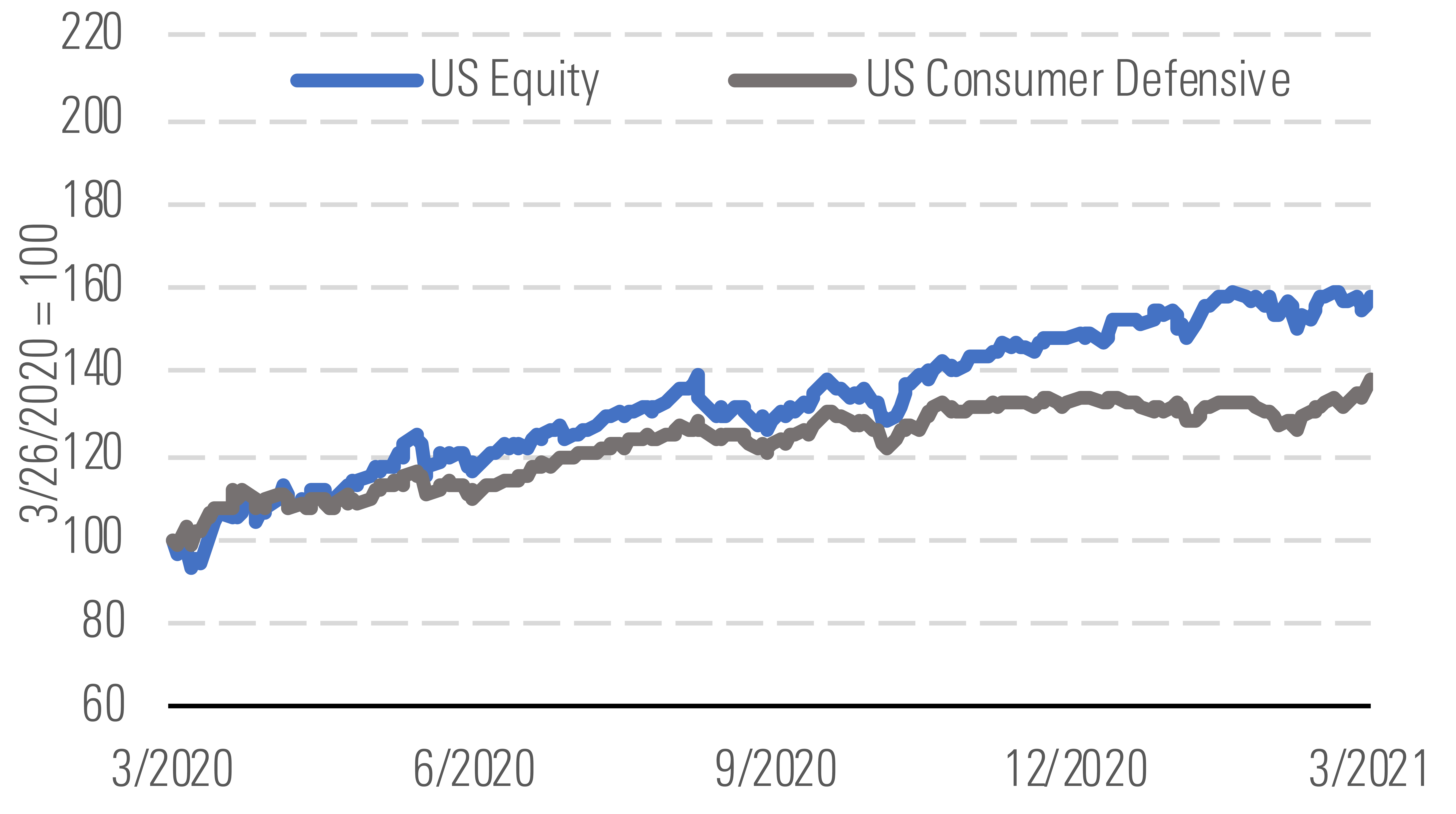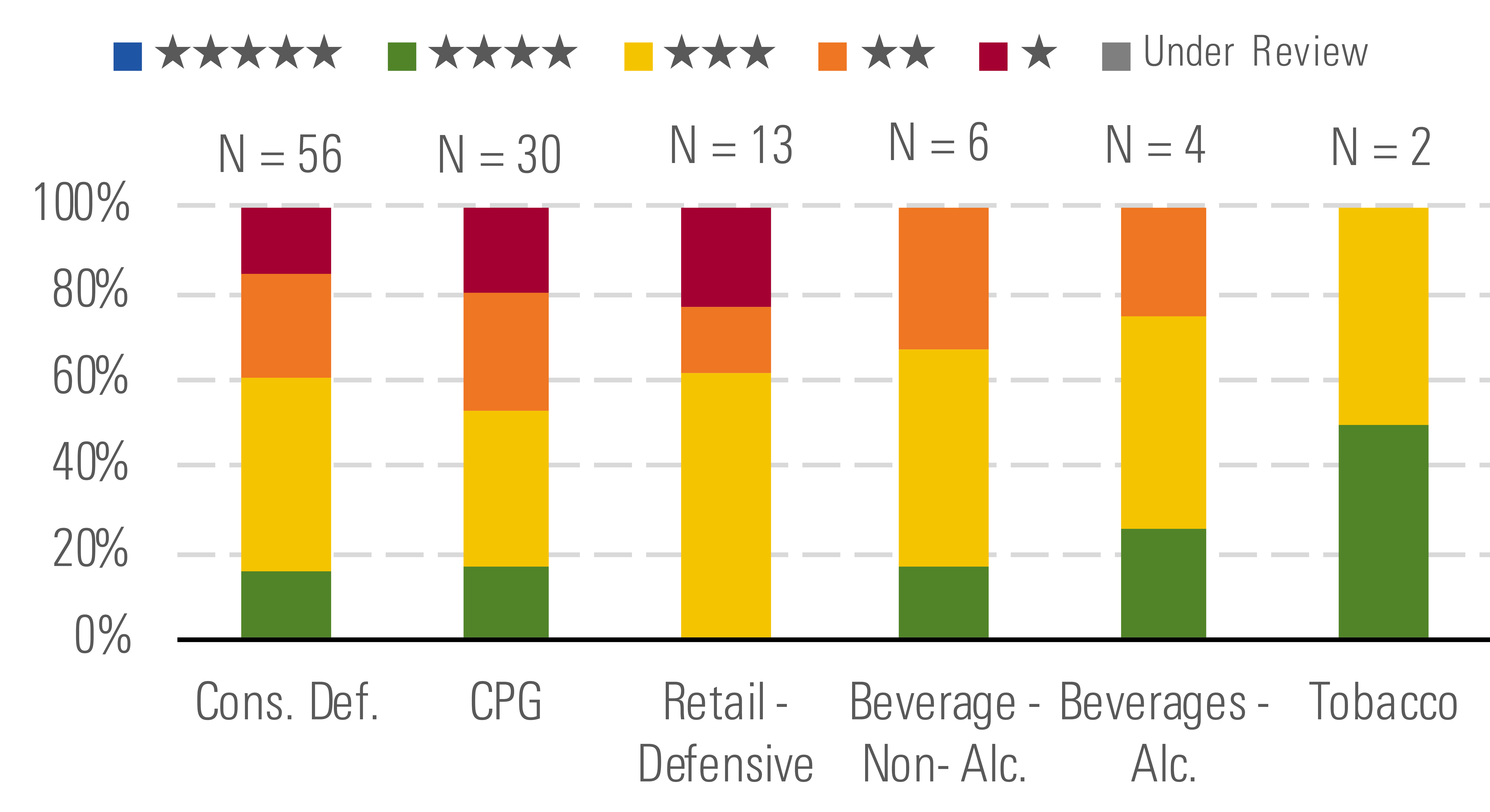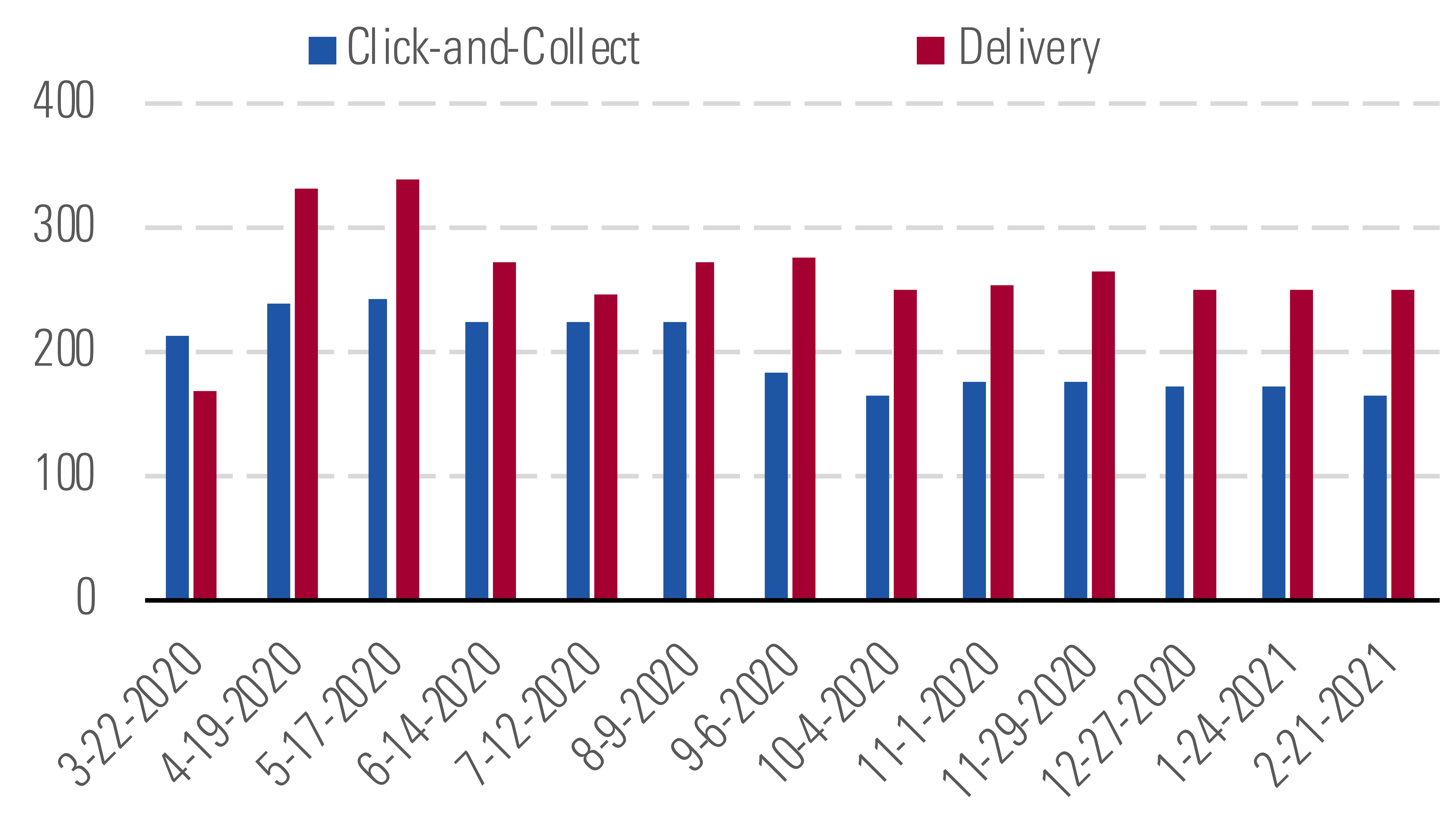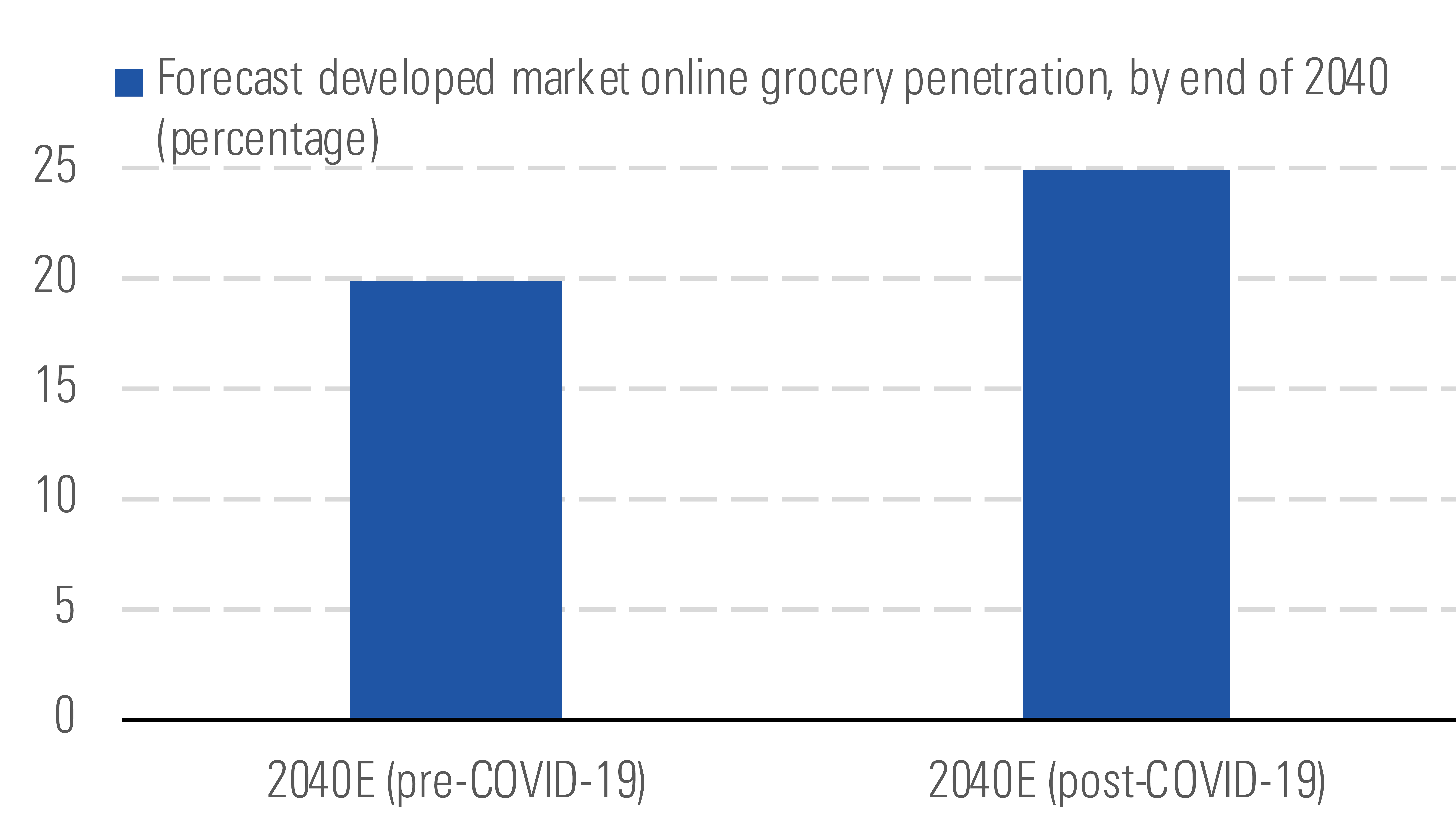3 Appealing Consumer Defensive Stocks
We're keeping an eye on online grocery shopping.
The consumer defensive sector continued to trail the broader market in the first quarter of 2021, rising 3.1% compared with the market’s 6.0% gain through March 26.

Consumer defensive shares have not kept up with broad market growth - source: Morningstar
As a whole, we view the sector as overvalued, with the median consumer defensive stock trading at a 10% premium to our intrinsic valuation versus the 2% premium we valued the sector at in December. Taken together, only about 16% of the consumer defensive names strike us as undervalued, trading in 4-star territory. Tobacco names look particularly attractive, trading at a 9% discount to our valuation, as consumers have largely remained at home and prioritized health and wellness.

In the consumer defensive sector, tobacco looks relatively attractive - source: Morningstar
Since the onset of the pandemic, consumers have changed shopping habits to avoid crowds and maintain social distancing. A result has been a massive shift to e-commerce, which includes traditional delivery to consumers and click-and-collect sales. This is shown in an index by IRI, a market research firm, of total edible consumer packaged goods sales.

The pandemic accelerated adoption of click-and-collect and delivery - source: Morningstar
Compared with the same month in the prior year, edible products sold through click-and-collect and delivery since March 2020 have spiked, with a reading of over 100 signifying more click-and-collect or delivery sales than the year-ago period.
While we do not anticipate this spike in online grocery shopping to remain elevated indefinitely, we have revised our prior expectation of digital penetration of the grocery sector for developed markets to 25% of overall sales by 2040, up from our precoronavirus expectation of 20% by 2040.

We’ve increased our long-term forecast for online grocery penetration - source: Morningstar
We view the spike in online grocery sales as a trial of online services during the pandemic, effectively accelerating a well-established trend. With limited protection from immediacy of need and customer proximity and virtually no benefit from replicability, pricing dynamics, or a value-added in-store experience, the conditions for digital disruption remain, and we believe the pandemic has accelerated adoption permanently.
Top Picks
Kellogg K Star Rating: ★★★★ Economic Moat Rating: Wide Fair Value Estimate: $82 Fair Value Uncertainty: Medium
We think investors should consider wide-moat Kellogg, which is currently trading more than 20% below our assessment of intrinsic value. Kellogg has benefited from pandemic-related gains in the retail channel (which drives 90% of its sales) as consumers continue to spend more time at home. But even before the pandemic, we thought Kellogg was taking steps to profitably reignite its top-line trajectory—abandoning direct-store distribution in favor of warehouse delivery, divesting noncore fare and stock-keeping units, and upping investments in its manufacturing capabilities and brands.
Coca-Cola Femsa KOF Star Rating: ★★★★ Economic Moat Rating: Narrow Fair Value Estimate: $65 Fair Value Uncertainty: Medium
Shares of narrow-moat Coca-Cola Femsa, the largest franchise bottler of Coca-Cola by volume, trade almost 30% below our assessment of intrinsic value. The firm mainly operates in Mexico and Brazil but has operations in other Central and South American countries. Shares have been hit by factors largely outside of the firm’s control, from COVID-19 currency impacts to falling disposable incomes in key markets. Although its territories are still struggling with COVID-19 and the region is facing general macro uncertainties, the firm continues to invest in commercial capabilities that should cement its competitive position.
Pilgrims Pride PPC Star Rating: ★★★★ Economic Moat Rating: None Fair Value Estimate: $32.50 Fair Value Uncertainty: High
We consider no-moat Pilgrim's Pride an attractive investment, with shares trading more than 25% below our fair value estimate. We believe Pilgrim's is poised to benefit from China removing its ban on imports of U.S. chicken and from the global protein shortage caused by African swine fever. The firm’s margins have suffered as a result of its 50% food-service exposure (which skews toward quick-service restaurants), but we expect margins to improve in 2021 as the food-service market recovers, exports gain momentum, and higher feed costs are mitigated with price increases, hedging, and operational improvements.

/s3.amazonaws.com/arc-authors/morningstar/c612f59b-89e0-422a-8f71-3eb1300d1a2c.jpg)
/cloudfront-us-east-1.images.arcpublishing.com/morningstar/AET2BGC3RFCFRD4YOXDBBVVYS4.jpg)
/cloudfront-us-east-1.images.arcpublishing.com/morningstar/T5SLJLNMQRACFMJWTEWY5NEI4Y.jpg)
/cloudfront-us-east-1.images.arcpublishing.com/morningstar/KNTMDTIW3JFWJBYCASLAV3ZIJE.jpg)
:quality(80)/s3.amazonaws.com/arc-authors/morningstar/c612f59b-89e0-422a-8f71-3eb1300d1a2c.jpg)